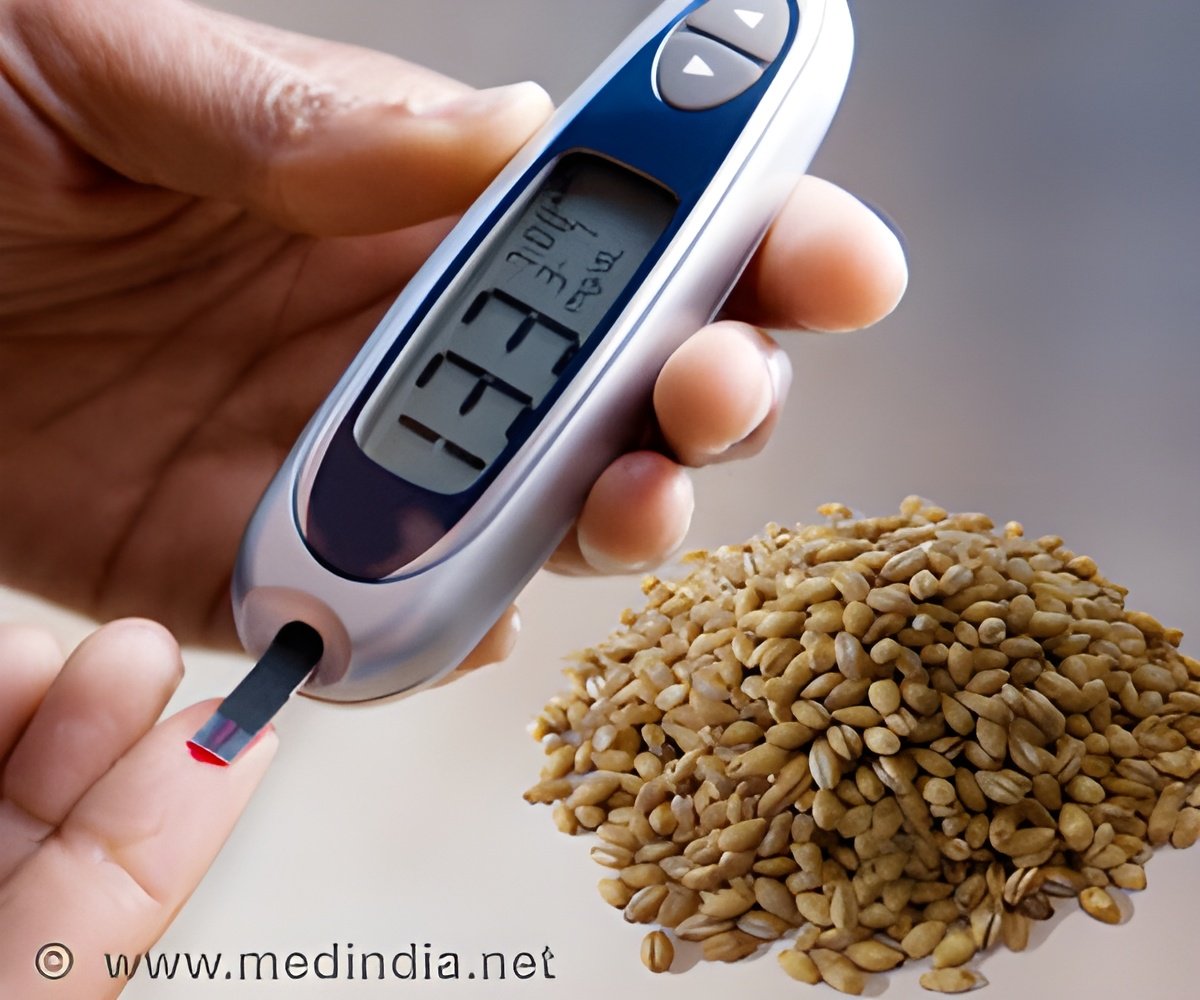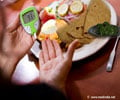Barley kernels taken with evening meals curb appetite and reduce the risk of diabetes and metabolic syndrome.

Scientists believe the indigestible carbohydrates, such as dietary fiber and resistant starch, present in the whole grains and their products, ferment in the gut facilitating blood sugar regulation. This fermentation, because of the activity of gut microbes, releases gut hormones such as GLP-1 known to increase satiety levels and reduce risk of metabolic syndrome.
Incidentally, the gut hormone GLP-1 not only produces beneficial blood glucose profile and anti-obesity benefits, but another advantage is that it is produced endogenously in people who consume whole grain barley products.
However, earlier research has shown that whole grain wheat or white wheat also reduces appetite, increases satiety, and decreases subsequent energy intake but the effects can be seen only after several weeks and just for a period of 48 hours.
The new study from the Lund University suggests that these effects were seen much quicker with boiled barley kernels and the changes to appetite-regulating hormones after just two meals.
Researchers, Prof. Inger Björck and her team, selected 19 young adults (6 men and 13 women) in the age group of 20 to 35 years and with BMI in the range of 18 to 25. Boiled barley kernels (BK) or white wheat bread (WWB) were provided as late evening meals to them in random order. During subsequent unrestricted but standardized breakfast and lunch meals (10.5-16 h), blood was collected for analysis. Appetite sensations and voluntary energy intake were also determined.
• facilitate glucose regulation,
• reduce subsequent energy intake,
• decrease hunger over two subsequent meals
'A particularly interesting observation in the present study is a 34 percent increase in plasma concentration of GLP-1 in the morning (0–330 min) after the BK evening meal, compared to the evening meal with WWB', say the researchers. They found that glucose-dependent insulinotropic peptide (GIP) also increased after BK meal and free fatty acid (FFA) levels decreased. There was significant reduction in energy intake during lunch the next day in the BK group as against the WWB group.
'It can be suggested that the effects on gastro-intestinal hormones seen in the present study after the boiled barley kernel evening meal, stem from colonic fermentation of indigestible dietary fiber in the barley kernel', they said. 'Colonic fermentation of specific indigestible carbohydrates may provide one possible mechanism by which whole grain have proven beneficial in prevention of obesity and type-2 diabetes'.
Source-Medindia















